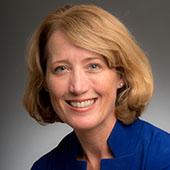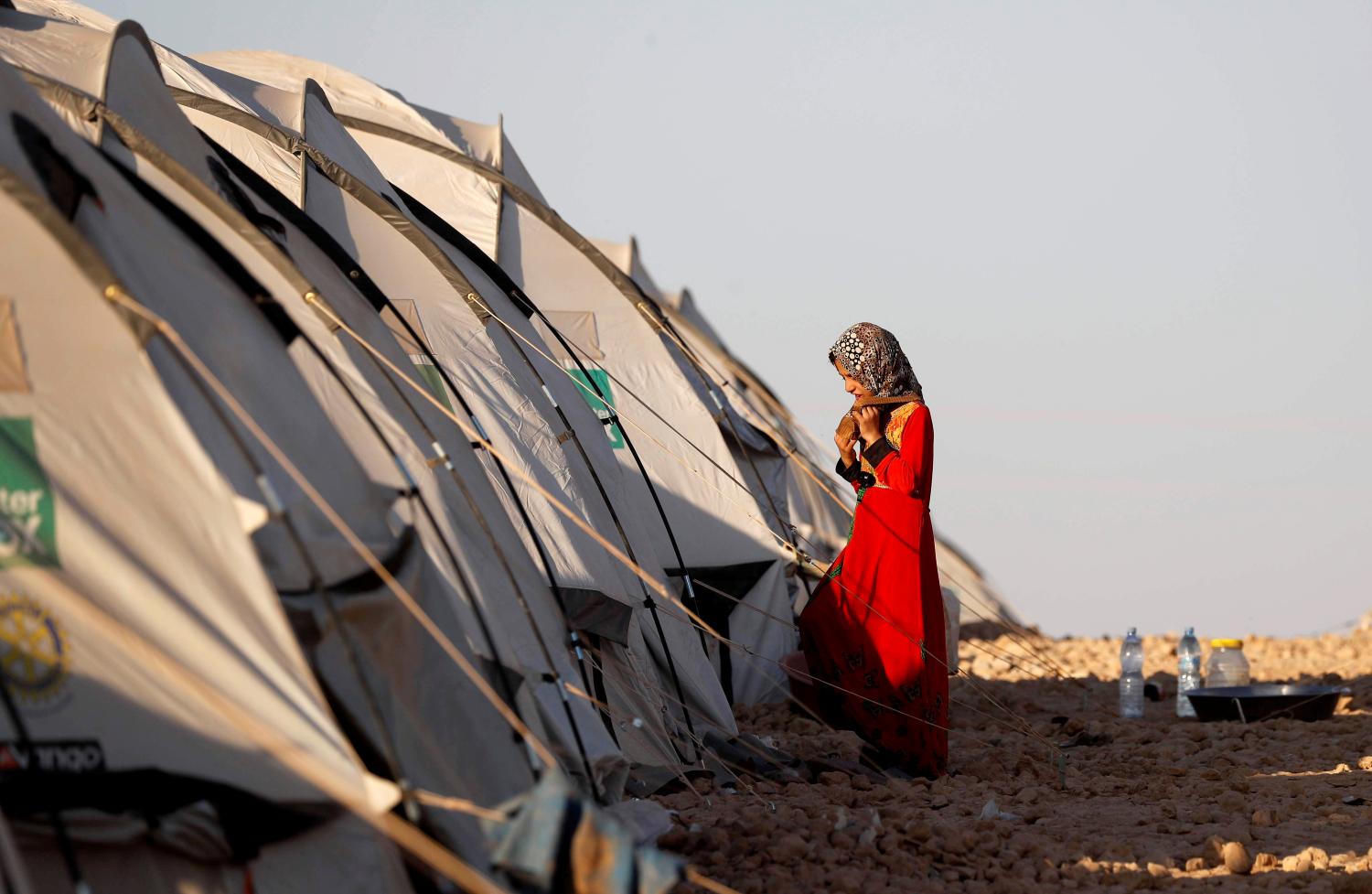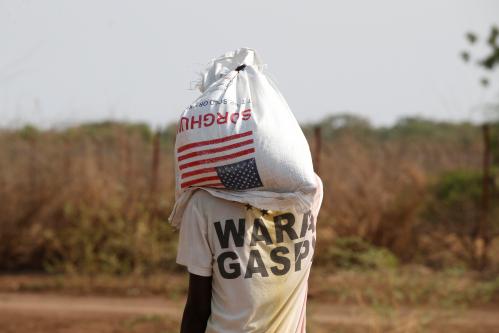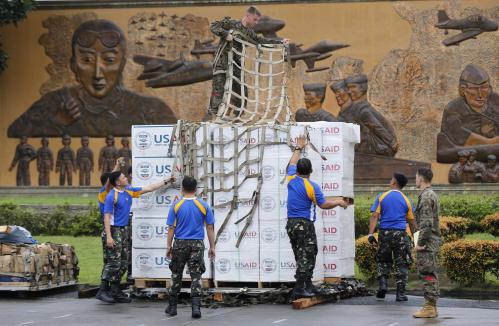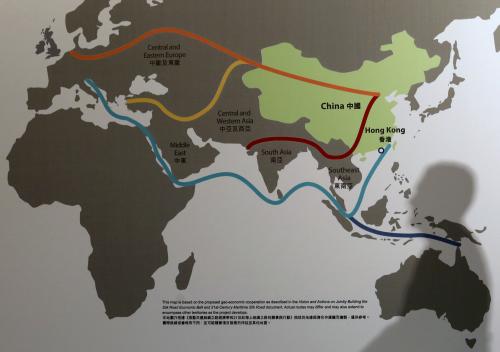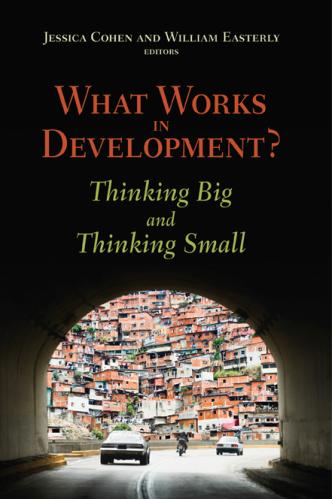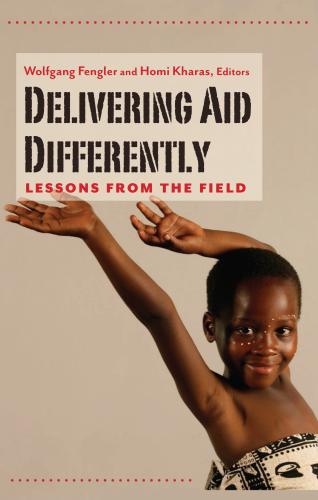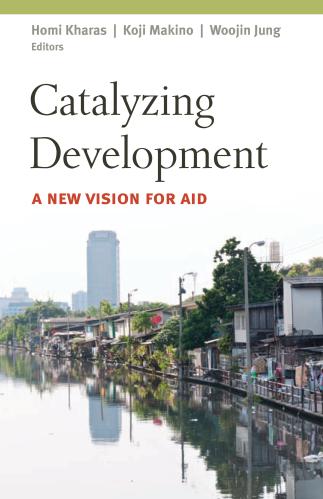After going to press, the authors realized that the name of an additional respondent was omitted, making the total number of leaders surveyed 94, not 93.
Executive Summary
A survey of 93 leaders, representing a wide range of organizations working to advance human well-being and economic development, reveals a global development sector in transition and perhaps even turmoil. Ending extreme poverty is no longer the defining lens through which development is viewed: State fragility and climate were mentioned nearly three times more often than poverty, and migration was mentioned more than twice as often. Leaders worry that responses to these and other global challenges are inadequate.
Though we found clusters of consensus, overall the survey reveals broad fragmentation across the global development sector, with respondents identifying a startlingly wide range of priorities, concerns, opportunities, and paths forward. The most frequently mentioned challenge is access to funding and resources, which is viewed as a fundamental challenge to addressing human needs worldwide as well as to the financial health and viability of development organizations and their missions. Leaders report excitement about new actors in development, new partners, new innovations, new applications of technology and data, new models of development finance, new revenue streams, and the potential of all these trends to improve development outcomes and, in the process, people’s lives. They see the rise of middle-income countries, local partners within developing countries, the private sector, and the role of China as long-term trends that will transform global development. Together, these and other trends are forcing development organizations to innovate—and, for some, to worry about their sustained relevance.
Overview and key themes
The global development sector is grappling with complexity. In 2018, we interviewed 93 leaders from governments, multilateral agencies, foundations, multinational corporations, development NGOs, and private sector development contractors to assess their views on how global development is changing and how their own organizations are adapting.1 This research reveals a fragmented development ecosystem and an ever-expanding cast of players. It illuminates worries about how to stay relevant in a world that is heading in many different directions at once. During this upheaval, development leaders are innovating, harnessing technology in exciting ways, using data to drive decisionmaking, and empowering partners on the front lines. They are painfully aware that not all of their organizations are likely to accomplish their goals or continue to exist in their current form. Overall, the survey results paint a picture of a global development sector rife with experimentation and transition. The most productive paths forward are not yet clear.
Some key themes emerged:
Whereas poverty reduction once provided a common north star to guide global development efforts, leaders no longer see poverty as a unifying framework for their collective efforts. This diminished focus on poverty is likely a result of success. More than 1 billion people have lifted themselves out of poverty over the last 25 years and the global poverty rate has reached a historic low. Countries with growing middle classes increasingly can both drive and pay for their own development, leading respondents to mention the rise of middle-income countries 2.5 times more often than poverty. They point to significant improvements in development levels, especially in key indicators of health but also in education and skill levels. One observer noted that “the development agenda has shifted to middle-income countries,” and another that the “dialogue today is more about moving countries to middle-income status than lifting up the desperately poor.”
Leaders highlighted a growing bifurcation between countries trapped in a toxic blend of conflict, state fragility, and poverty and those that have escaped to middle-income status. They expect this divide to grow. Meanwhile, they underscored that countries of all income levels struggle with persistent pockets of poverty and rising inequality. Poverty remains a concern but is deeply enmeshed with other challenges and hard to address in isolation.
Leaders enumerated a long list of development challenges that compete for attention and resources. Among issues seen as neglected or insufficiently resourced, climate change tops the list, followed by youth, state fragility, and governance. Leaders urge a greater focus on gender, emphasizing both the needs and the potential of women and girls.
New actors are proliferating in the global development sector and, in the process, diluting the power of old hierarchies. Western governments that long served as the primary funders and often the drivers of international development have been joined by China, India, and other countries with rapidly growing resources, as well as by foundations and high net worth individuals, multinational corporations, and social investors. Resources from the private sector, remittances, and domestic taxation now dwarf traditional foreign aid (Overseas Development Assistance, or ODA). New funding mechanisms like development finance that leverage private sector investments, social enterprises, impact bonds, and others are not just creating new revenue streams but also changing where resources are directed and how development work is conducted. Survey respondents largely see these changes as positive, but they worry about important work that could fall through the cracks. Neither immediate humanitarian relief nor infrastructure investments can be readily financed by private funds. This work consists of long-term development assistance that helps make communities more resilient to crises and improves prosperity, governance, and security sufficiently that countries graduate from needing external assistance.
Politics, both geopolitical and domestic, are contributing to an overall landscape of complexity. Respondents fret about rising nationalism and populism around the world, which they see as threatening progress in international development. There is a need, they say, to communicate more effectively with publics about the impact of international development, its effectiveness in addressing humanitarian needs, and why it benefits their own countries’ interests. Many are concerned over a growing political demand to connect development to immediate national interests rather than long-term goals like global economic growth or the reduction of human suffering. They also underscore concerns about rising authoritarianism and closing space for civil society around the world.
Leaders are struggling with the pace of change and striving to stay relevant and innovate. They face funding concerns, closing space for international NGOs and development companies, and declining positions of trust. They worry about having the right talent and adapting their organizations’ cultures. They are striving not just to adapt but also to harness new technologies, the potential of new partners, and data to make a greater impact.
Levels of optimism vary. One observer, who has served in government, NGOs, and foundations, sees a “massive amount of inertia in the system—in aid agencies, the World Bank, foundations—so that change will be modest as to render current models irrelevant.” Others express hope and see opportunity. One respondent anticipates “many developing countries achieving sustained economic growth and an expanding middle class that will be a force for stability, entrepreneurship, and innovation.” On balance, most leaders see a turbulent mix of opportunities and challenges, which they are endeavoring to navigate through various means.
Surprisingly, certain issues typically at the forefront were rarely mentioned during the interviews. Along with poverty, issues of inclusion and inequality are typically front and center in discussions of development, as are human rights. Yet respondents referenced these issues infrequently. Respondents referenced Africa several times, but few other regions or specific countries were highlighted. Multilateral actors such as the U.N., the World Bank, and other development banks were seldom discussed although they are principal actors in the development field. And, despite enormous concerns in the development sector after 9/11 and its aftermath, the use of development to serve political or security ends was rarely mentioned. Terrorism and extremism were referenced only a handful of times across 93 interviews. Peace earned just a few mentions and violent crime almost none.
-
Footnotes
- Throughout this report, we cite respondents’ comments without specifying individual names. We identify anonymous respondents in varying ways, including as “observers,” “leaders,” “survey respondents,” and “an NGO executive,” inter alia.

